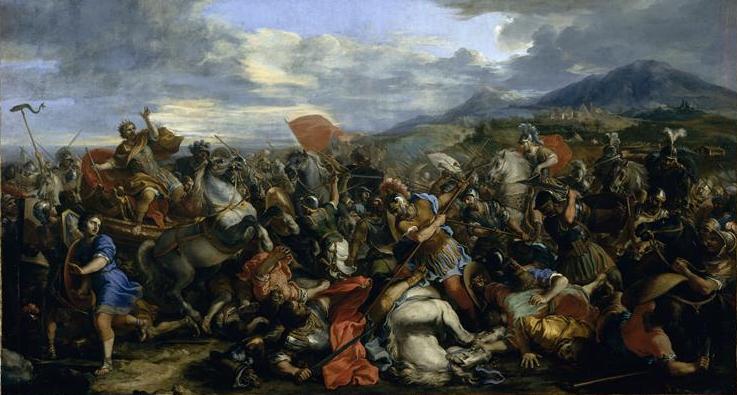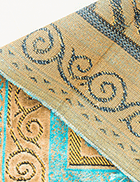
Astonishing details of Alexander the Great’s personal armor as he prepared for the Battle of Gaugamela against the Persians are described by the Ancient Greek historian, Plutarch.
Plutarch’s Life of Alexander is one of five extant tertiary sources on the Macedonian conqueror. It includes anecdotes and descriptions of events that appear in no other source.
The battle at Gaugamela took place in 331 BC between the forces of the Army of Macedonians and the Persian Army under King Darius III. It was the second and final battle between the two kings and is considered to be the final blow to the Achaemenid Empire, resulting in its complete conquest by Alexander.
As dawn approached on the day of the battle, Plutarch describes the scene:
[Alexander] put on his helmet, having the rest of his arms on before he came out of his tent, which were a coat of the Sicilian make, girt close about him, and over that a breastpiece of thickly quilted linen, which was taken among other booty at the battle of Issus.
The helmet, which was made by Theophilus, though of iron, was so well wrought and polished, that it was as bright as the most refined silver. To this was fitted a gorget of the same metal, set with precious stones.
His sword, which was the weapon he most used in the fight, was given to him by the king of the Citieans, and was of an admirable temper and lightness.
The belt which he also wore in all engagements, was of much richer workmanship than the rest of his armor. It was a work of the ancient Helicon and had been presented to him by the Rhodians, as a mark of their respect for him.
So long as he was engaged in drawing up his men, or riding about to give orders or directions, or to view them, he spared Bucephalus, who was now growing old, and made use of another horse; but when he was actually to fight, he sent for him again, and as soon as he was mounted, commenced the attack.”
Alexander’s army was outnumbered but victorious at the battle of Gaugamela
Alexander’s army was heavily outnumbered, and modern historians say that “the odds were enough to give the most experienced veteran pause.”
Despite the overwhelming odds, Alexander’s army emerged victorious due to the employment of superior tactics and the clever deployment of light infantry forces.
The fighting took place in Gaugamela, which literally meant “The Camel’s House,” a village on the banks of the river Bumodus. The area today would be considered modern-day Erbil, Iraq.
Plutarch devotes a great deal of space to Alexander’s drive and desire and strives to determine how much of it was presaged in his youth. He also draws extensively on the work of Lysippus, Alexander’s favorite sculptor, to provide what is probably the fullest and most accurate description of the conqueror’s physical appearance.
When it comes to his character, Plutarch emphasizes his unusual degree of self-control and scorn of luxury: “He desired not pleasure or wealth, but only excellence and glory.”
As the narrative progresses, however, the subject incurs less admiration from his biographer and the deeds that it recounts become less savory. greekreporter









